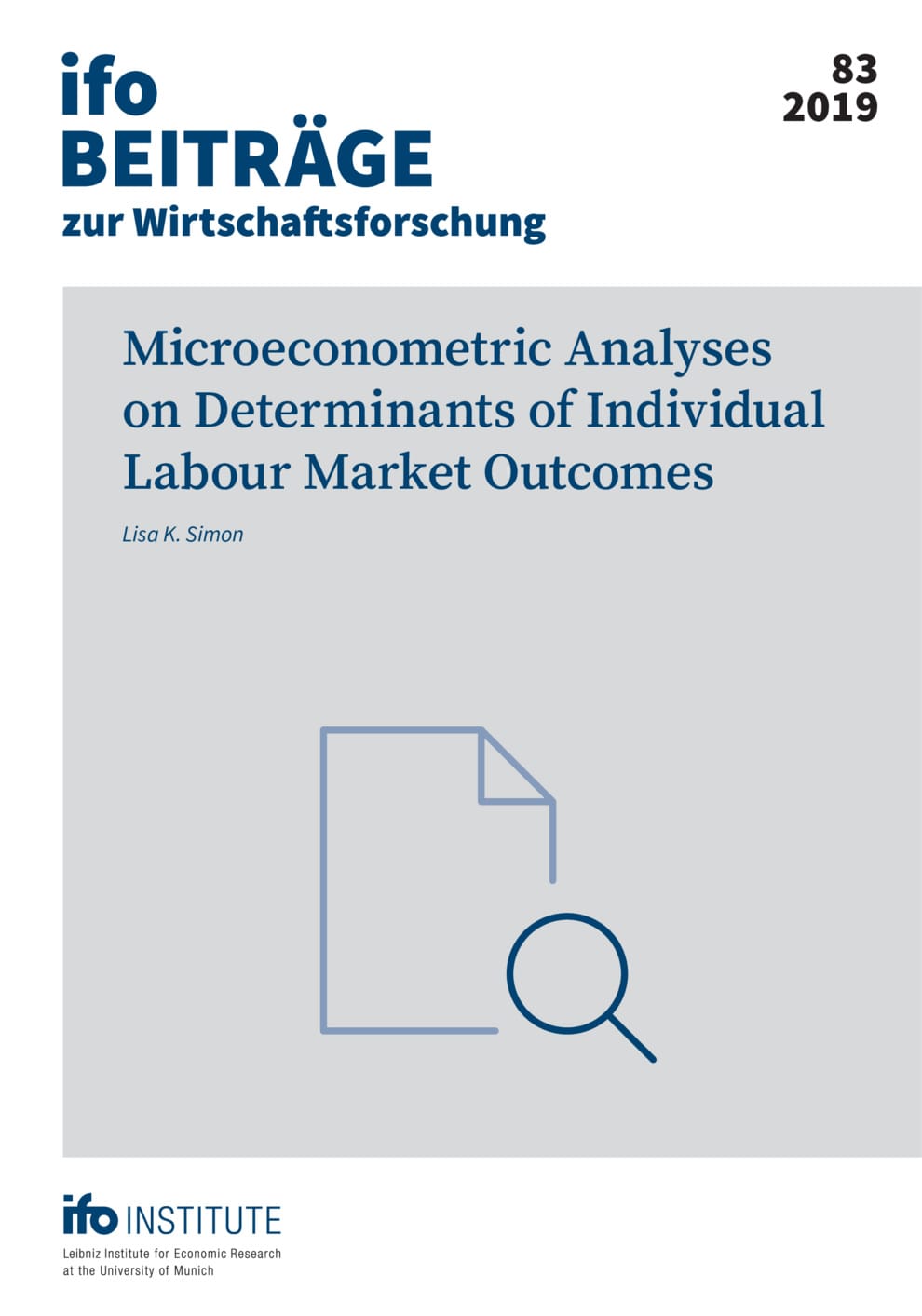Microeconometric Analyses on Determinants of Individual Labour Market Outcomes
ifo Institute, Munich, 2019
ifo Beiträge zur Wirtschaftsforschung / 83

This doctoral thesis analyses the impact of education and other determinants on labour market outcomes using microeconometric methods. Chapter 1 serves as an introduction. Chapter 2 uses a randomised field experiment among German human resource managers to evaluate which skill signals such as cognitive skills, social skills and maturity are valued by employers when considering the CVs of applicants who enter the labour market. Results indicate that signals in all three studied domains – cognitive skills, social skills, and maturity – affect the probability of being invited for a job interview. GPAs and social skills prove relevant for both genders and both groups of labour-market entrants. The relevance of other signals differs in terms of credibility, relevance, and expectedness by gender and education level. Females are particularly rewarded for IT and language skills and males for maturity.
Chapter 3 analyses the impact of beliefs about refugees’ education levels on natives’ general attitudes towards refugees. In a survey experiment among 5000 university students, we shift respondents’ beliefs by providing randomized differing information about education level of refugees. Results show that shifting beliefs towards better education of refugees increases the concerns about labour-market competition of high-skilled natives but does not affect general attitudes. This is because economic aspects are rather unimportant for forming opinions about refugees, as opposed to humanitarian aspects.
Chapter 4 analyses the effect of a labour market deregulation on the demand and supply side of the labour market. The deregulation was an amendment to the Trade and Crafts code of Germany regarding the requirement to become self-employed craftsmen. Using individual social security data and micro census data, the project sheds light on the impact of the reform. Results show that while the reform drastically increased the number of businesses in deregulated craft occupations, the effect on earnings and employment for incumbent workers was slightly negative. The reform also failed to increase overall employment in the crafts sector and had no effect on self-employed craftsmen.
Chapter 5 analyses the impact of regional structural change caused by exposure to import competition from China and Eastern Europe on vocational occupation choices of adolescents. Manufacturing jobs are skill-specific, while service jobs are more general, meaning they teach transferable skills that can be applied to new jobs or technologies. The analysis shows that despite decreasing employment in manufacturing in their region, adolescents choose more skill-specific occupations in manufacturing. This has negative consequences for their later labour market outcomes.